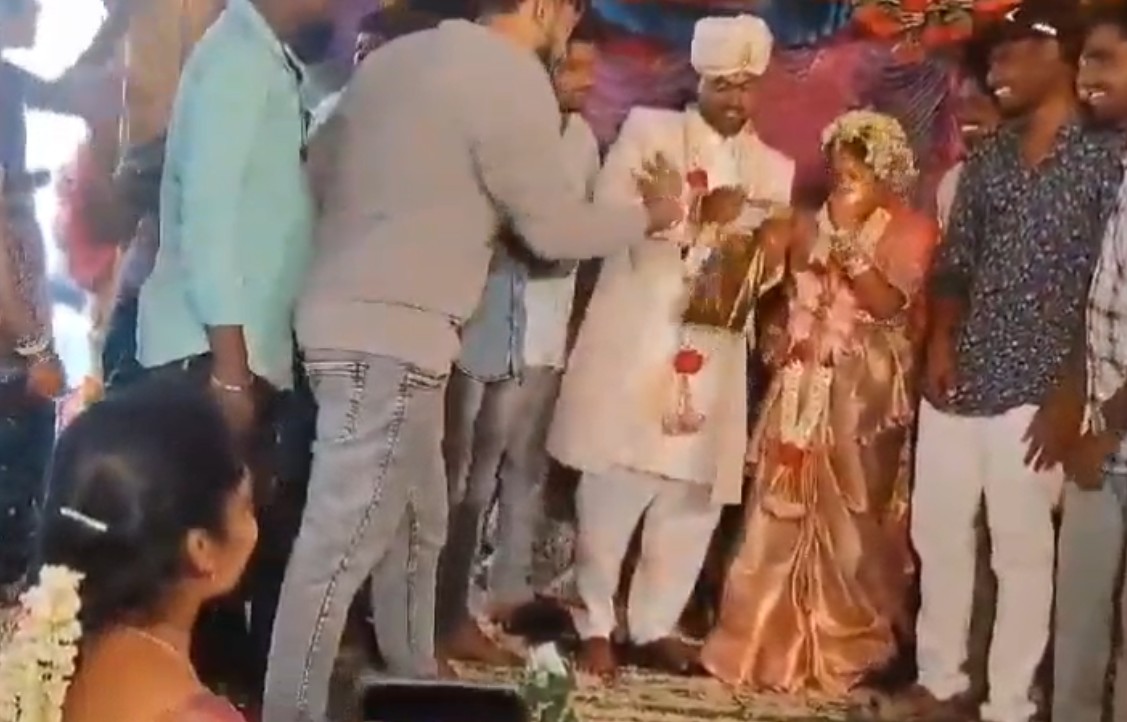The legal validity of the laws against unlawful conversions in Uttar Pradesh and Uttarakhand will be examined by the Supreme Court, which issued notice to the two state governments and the Centre today. The states have four weeks to respond before the next hearing. The court's decision came in response to a bunch of petitions which challenged the validity of the law, contending that they disturb the basic structure of the Constitution, and demanded that they be struck down as they violate secularism, equality and non-discrimination.
The Uttar Pradesh government's Prohibition of Unlawful Conversion of Religion Ordinance 2020 and the Uttarakhand Freedom of Religion Act, 2018, prohibit forceful prohibition of conversion for the purposes of marriage.
Critics say the laws are the right wing's offensive against what they have called "love jihad" -- a coinage for relationships between Muslim men and Hindu women, which, they say, is a ruse to forcibly convert the women. The laws, they say, will be used to target Muslim men.
Initially, the court was reluctant to examine the issue and asked the petitioners to approach High Courts. "The challenge is pending before Allahabad and Uttarakhand High Courts. Why cannot you go there?" said Chief Justice of India SA Bobde.
In response, senior counsel CU Singh, who was presenting the petitioner Citizens for Justice and Peace, said the matter should be looked into by the top court as "multiple states are passing these laws".
"Madhya Pradesh and Himachal Pradesh also passed these laws," Mr Singh said, arguing that a 10-year jail term is prescribed under this law and the burden of proof is on the accused. Seeking a notice to stay the laws, he said certain provisions are "horrifying" and the clause of prior permission to marry is "obnoxious".
CJI Bobde said all issues would be heard in the next hearing.
Another petitioner argued that the Supreme Court can call in these cases from the High Courts and examine it.
One of the pleas maintain the law is an "illusory construct" based on rhetoric to promote divisiveness in society, generate permanent suspicious attitudes towards Islam and the Muslim community and create enmity between communities and breach harmony.
The petition has also raised issues over privacy, excessive constitutional powers to the police.
"We are issuing notice," Chief Justice Bobde said, adding that the matter would be taken up after four weeks.
Uttar Pradesh, which has a chunk of Muslim population, has been first off the block with an Ordinance or executive order, which said religious conversions that use falsehood, force or an incentive, or take place solely for the purpose of marriage will be declared a crime.
Those who plan to convert after marriage will have to give two months' notice to the district magistrate. The person converting will have to prove that it was not forced or for marriage. All cases will be non-bailable.
Several people have already been arrested under the new law which came into effect in the state following an executive order in November.
'Can't Say Everything Parliament Did During Emergency Is Void': Supreme Court In Preamble Case Strict Anti-Pollution Measures In Delhi To Continue For At Least 3 More Days Supreme Court To Hear Petition Seeking Ban On Websites With Jokes On Sikhs Amazon Employee Greets Friend At Wedding, Dies Of Cardiac Arrest "Violation Of Sovereignty, Abuse Of Power": Kanwal Sibal On US Report On Adani Group Indian Student In US Accidentally Shoots Himself Dead While Celebrating Birthday 'Odisha Had No Dealings With Adani Group': BJD Rejects US Charge "A Thousand Times Better": What Delhi LG Said About Chief Minister Atishi Baba Siddique Murder Case: Man, 26, Arrested From Maharashtra's Akola Track Latest News Live on NDTV.com and get news updates from India and around the world.

